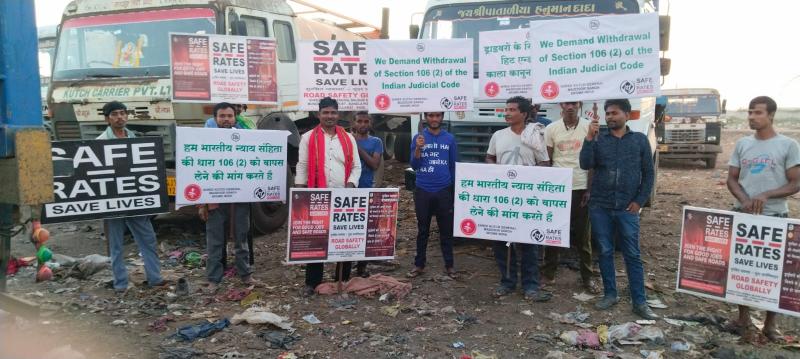The safety benefits of having well-staffed railways are clear - from help and assistance on-board the train, to inspectors checking the quality of the tracks. The global pandemic also highlighted the importance of the role cleaners play in keeping rail clean and safe to use.
Why it’s important
Covid-19 led to a worse recession than 2008-9. The resulting lockdowns caused 114 million people to lose their jobs over 2020. The ILO estimates working hours lost in 2020 were equivalent to 255 million full-time jobs, leading to $3.7 trillion in lost labour income. Women and young workers have been profoundly impacted by the COVID-19 pandemic.
Some railway employers used the COVID-19 Pandemic as an excuse to cut jobs, citing the economic impact of falls in ridership. Reduction of vital staff and an over reliance on agency, temporary and outsourced workers puts safety at risk. Temporary and agency workers are often not provided with the same level of training as directly employed staff and are denied the opportunity to build on the job experience due to the short-term nature of their contracts.
Even before the pandemic the number of jobs in the railway has been declining and roles like cleaning and maintenance outsourced. The ITF calls for retention and creation of decent and green jobs in rail.
Falling job formality, pay, conditions, occupational safety and health (OSH) are deepening labour and skills shortages. We need skilled rail workers on our trains, in our stations, and building and repairing our tracks.
Key to safety is staffing and key to maintaining safe levels of staffing is decent work and employment conditions, to attract, train and retain skilled workers. Collective bargaining is the best way to ensure quality jobs in the railway and must be used to stop exploitation (disproportionately of women and young workers), low pay, overwork, fatigue, stress, gender-based segregation, and safety failures growing alongside new technology.
Low staffing also puts passengers and workers, particularly women, at higher risk of violence and harassment. A study by the United Nations found that 80% of women have experienced sexual harassment on public transport, the most common locations are subways (64%), buses (38%) and trains (31%). The connection between safety during the commute and keeping guards on the train - as well as staff on platforms and in stations - is obvious.
Recruitment and retention of women and young workers is particularly crucial:
Accessibility
People with disabilities, wheelchair users and older people benefit from an accessible railway, with staff that can help where needed. A SAFELY accessible railway requires staff on the platform to ensure ramps are available for embarking and disembarking and staff on the train to safeguard those that require assistance.
Why it’s important
Public transport is for everyone, ensuring our railways are accessible is key to ensuring certain groups are not excluded. It is crucial to ensure everyone can access their right to mobility.
The strong correlation between age and disability means that there is a growing need for both physical accessibility and for practices and policies that give people the confidence to travel. This includes a wide range of services and facilities such as ticket purchase and information provision, which are an integral part of railway travel.
Policies to reduce staff numbers at stations and on trains are seriously compromising the level of accessibility. Wheelchair users have reported missing their stop and having to travel right to the end of the line because station staff have not been present to fix the ramp for their disembarking; with no guard there is no opportunity to gain assistance without pulling the emergency alarm and alerting the driver.
Journey planning and information are critical factors. The growing use of internet and app-based ticket purchase and service information risks excluding people whose internet use and access remains low. Those with learning difficulties and older people, who may not use smart phones, are especially affected. Closure of ticket offices increasingly means no alternative to use of ticket vending machines, which are inaccessible to many older and disabled people.
Our demands:
- Fully accessible rail for all, in line with equality and anti-discrimination law
- Mobility recognised as a human right and protected as such
- Staff at all ticket stations, on platform and onboard
- Step free stations
- Accessible toilets on-board and at the station
- Governments to include disabled and pensioner groups in the planning for accessible rail infrastructure and rolling stock
What unions can do:
- Demand fair and equal access to Rail by lobbying Government and Railway operators for accessible railways
- Work with pensioner and disable rights groups to co-ordinate messaging and demands for safe and accessible rail
- Review national and international laws on equality and discrimination and check if railways are compliant in providing accessible service to all
- Help support the representation of pensioner and disability rights on decision making bodies for rail
- Download and disseminate Safe and Accessible Rail leaflet (to be made)



